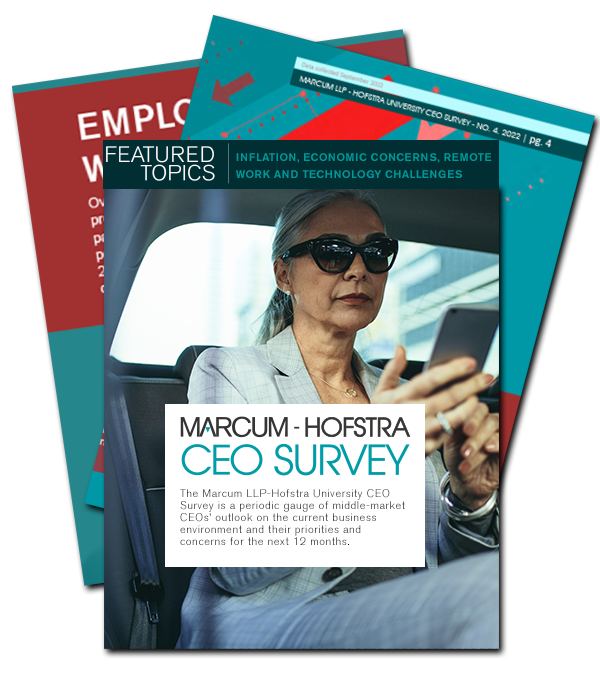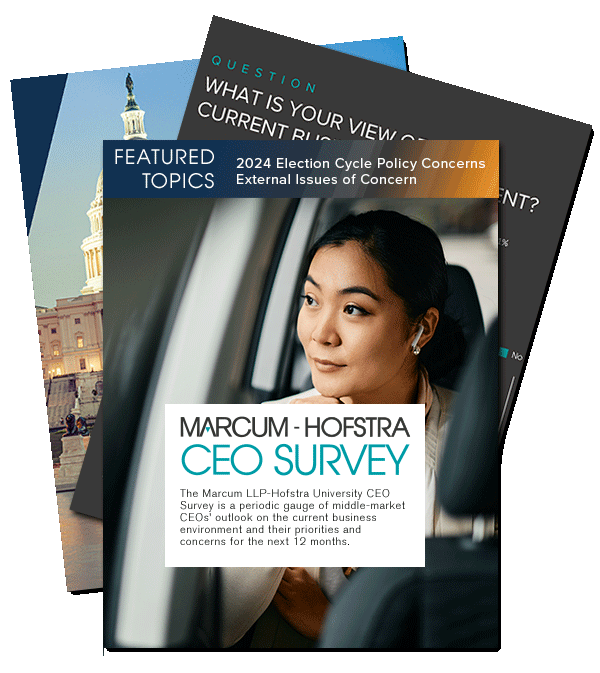
No. 4, 2024
With the economic and regulatory uncertainties shared by CEOs, it is clear that businesses are bracing for potential upheavals ahead of the 2024 elections.

No. 3, 2024
CEOs are reporting difficulty hiring in specific areas like mid-level and information technology position.
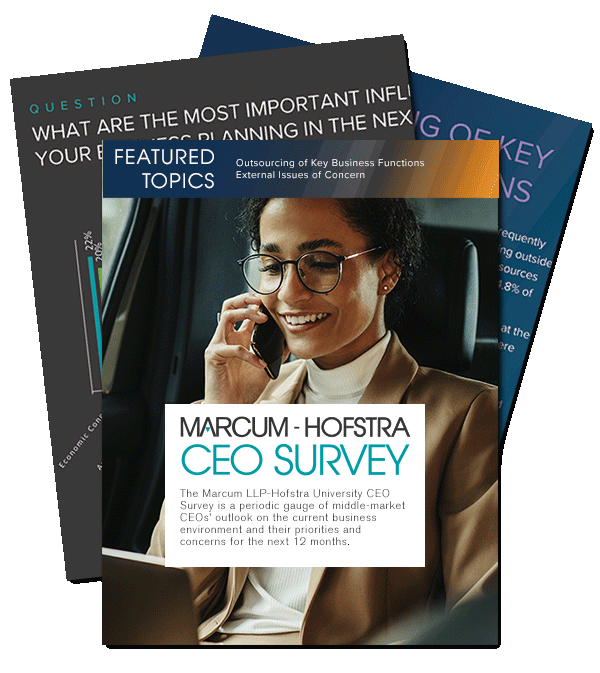
No. 2, 2024
The latest edition of the Marcum-Hofstra University CEO Survey provides new insights into the business environment, outlook, and trends among middle-market CEOs.
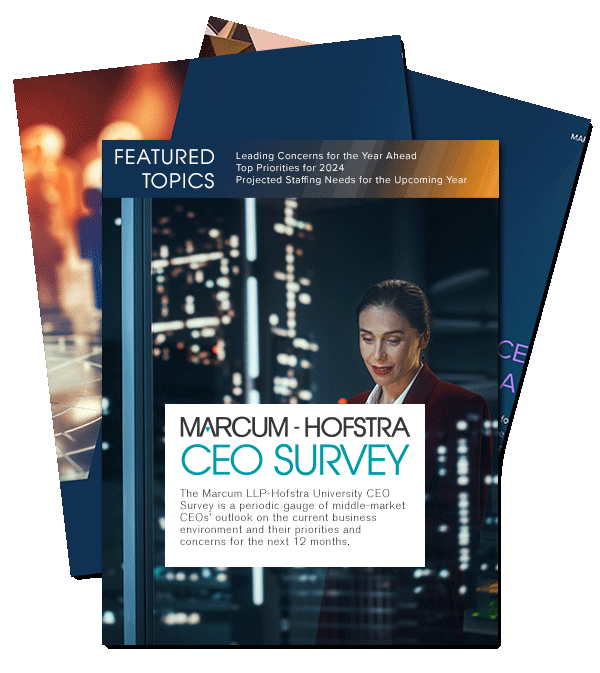
No. 1, 2024
Among a broad range of issues, 45.3% of CEOs identify political uncertainty as a critical concern influencing their decision-making process and corporate strategy.
2023
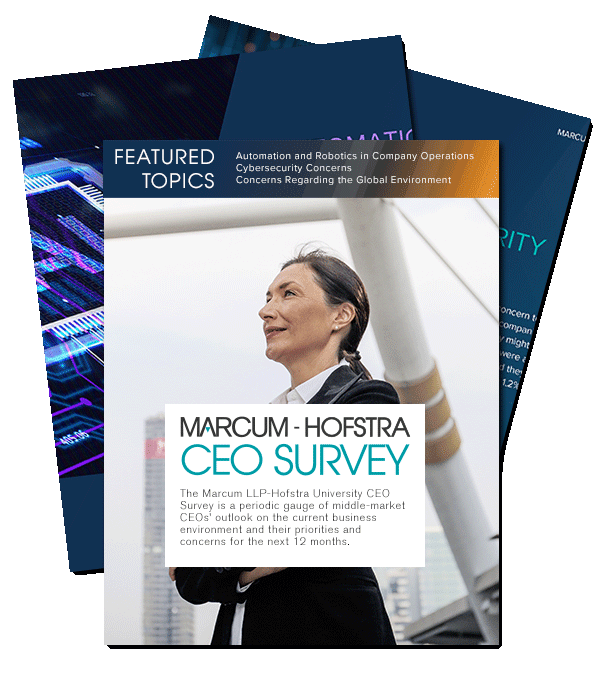
No. 5, 2023
Leaders Cite Operational Efficiency and Cost Savings as Top Benefits of AI in Latest Industry Survey
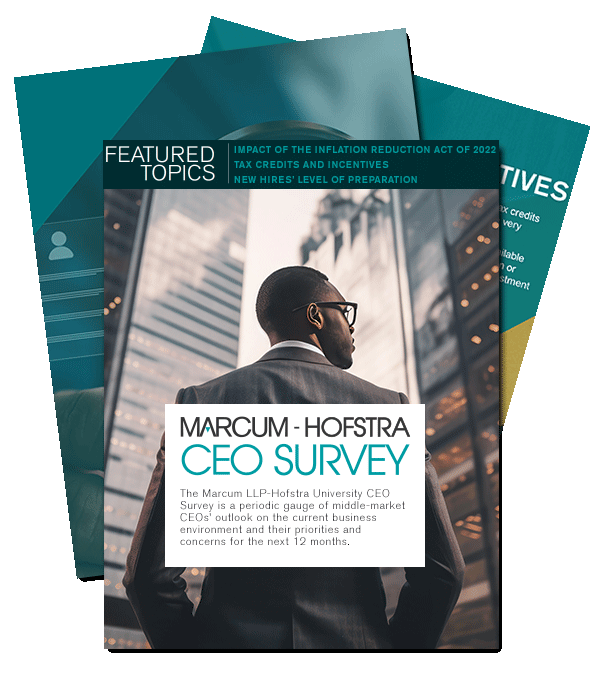
No. 4, 2023
With a spotlight on the Inflation Reduction Act of 2022 and tax incentives, the survey presents CEO perspectives on the business environment and the impact of significant legislative actions.
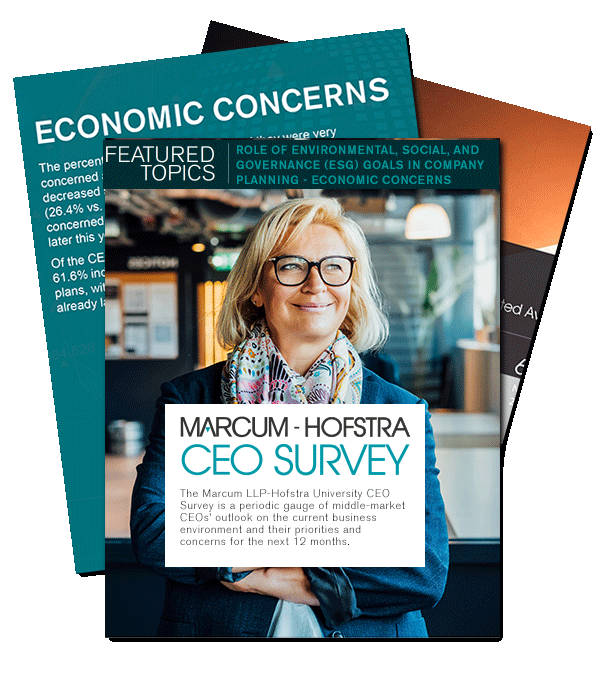
No. 3, 2023
The top three influences on business planning were unchanged from our prior survey, but the degree of influence for each shifted to a degree.
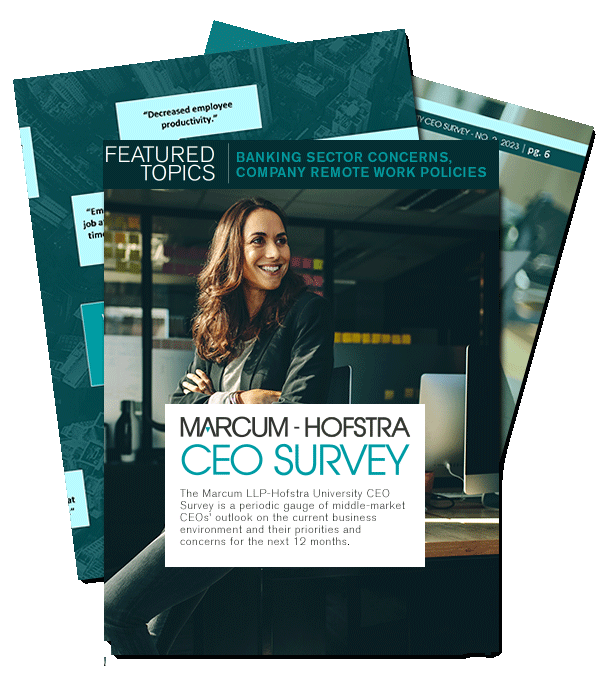
No. 2, 2023
Nearly two-thirds of mid-market CEOs are concerned about the stability of their company’s bank - but not enough to change institutions.
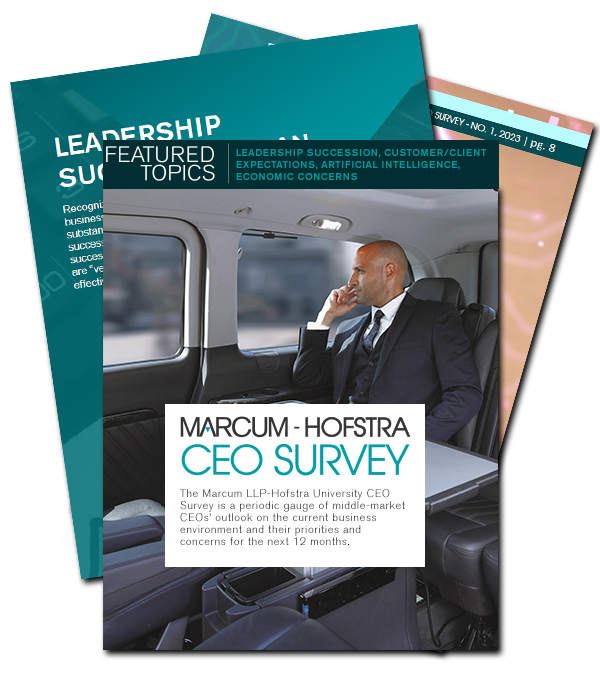
No. 1, 2023
Prevailing business attitudes among middle-market CEOs continued to show improvement .
2022
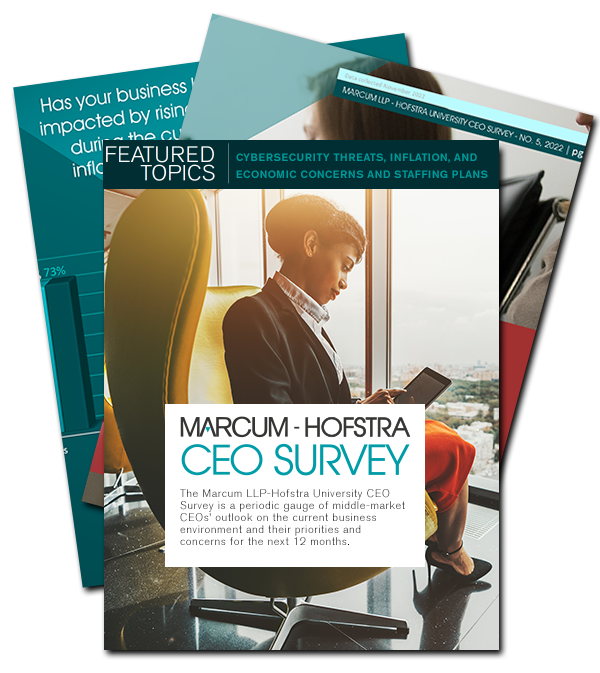
No. 5, 2022
A majority of CEOs say their companies are not fully prepared for a cybersecurity threat.
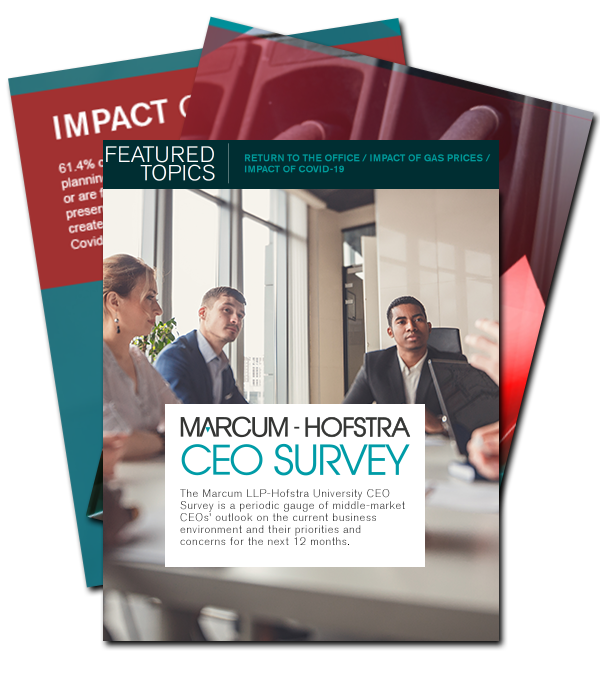
No. 3, 2022
The survey, conducted in mid-June, found that 48% of CEOs reported working in the office five days-a-week.
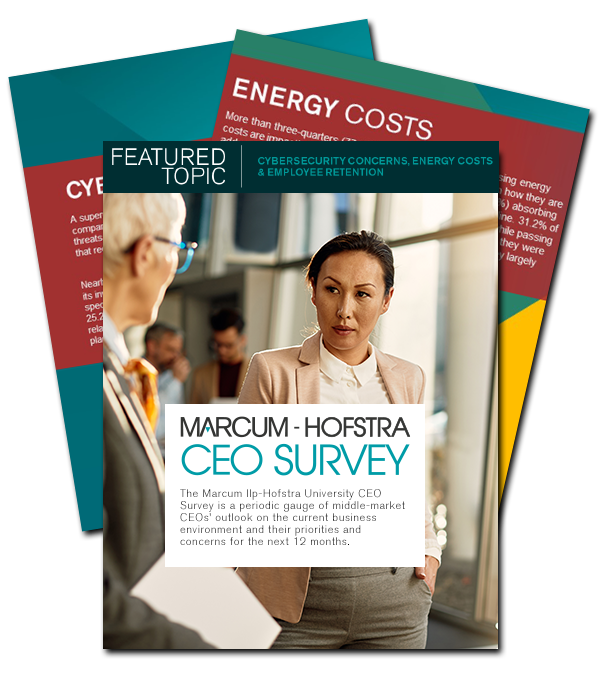
No. 2, 2022
The sharp increase in optimism among middle-market CEOs is obviously very welcome and, hopefully, is a positive indicator, at least in the short-term.
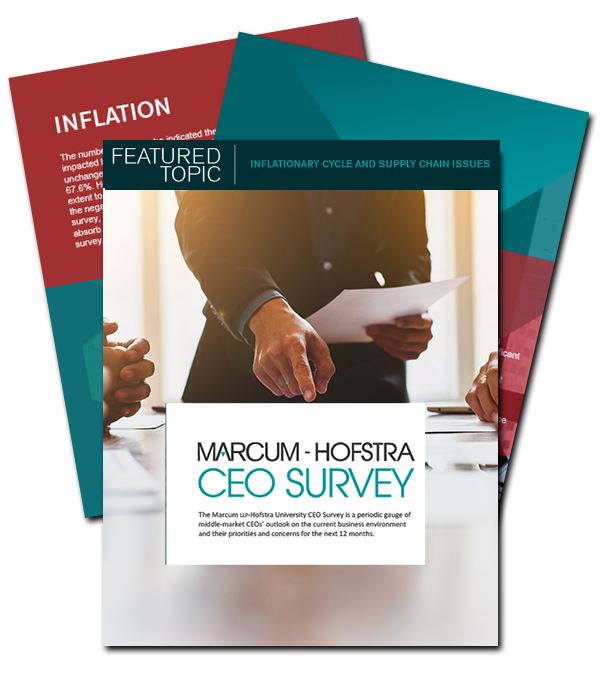
No. 1, 2022
Four out of five middle-market CEOs say that employee retention and stress have become significant problems for their companies.
2021
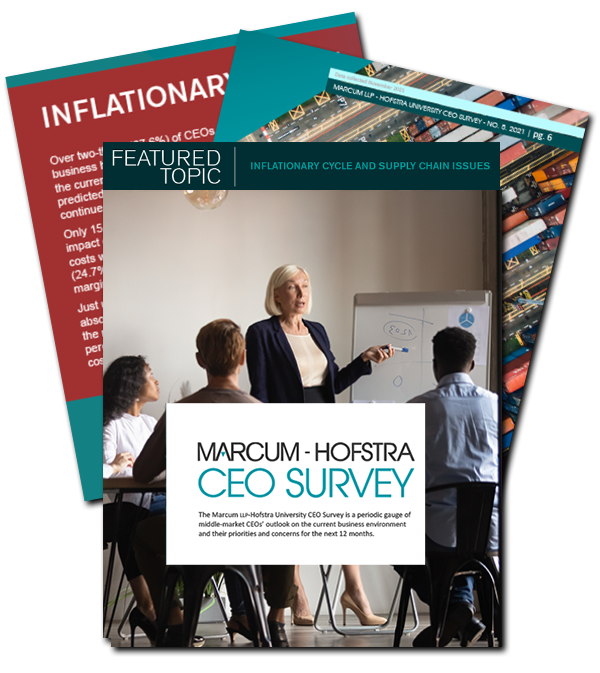
No. 5, 2021
About two-thirds of mid-market CEOs have been impacted by rising costs due to inflation and more than 40 percent believe the country is in a long-term inflationary cycle that will require government intervention.
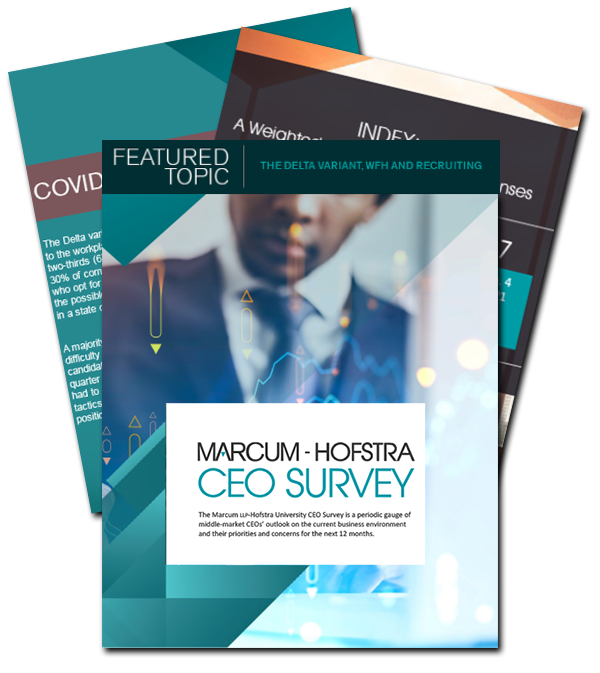
No. 4, 2021
The economic outlook among mid-market CEOs remains high, even as concerns about the Delta variant of COVID-19 and the availability of qualified job candidates is changing how they will do business over the next 12 months.
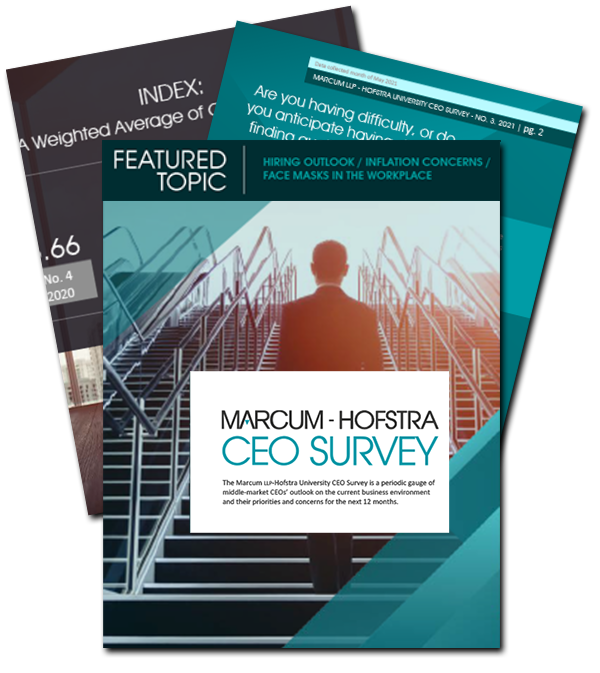
No. 3, 2021
The business outlook among mid-market CEOs continues to improve, but their optimism is tempered by concerns about rising post-pandemic inflation.
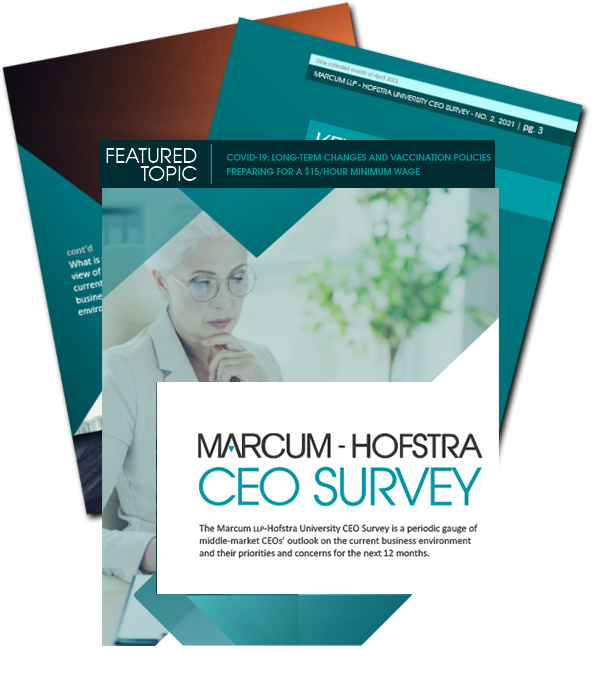
No. 2, 2021
A permanent shift to a partially remote workforce was cited most often by CEOs when asked to predict long-term business changes as a result of the pandemic.
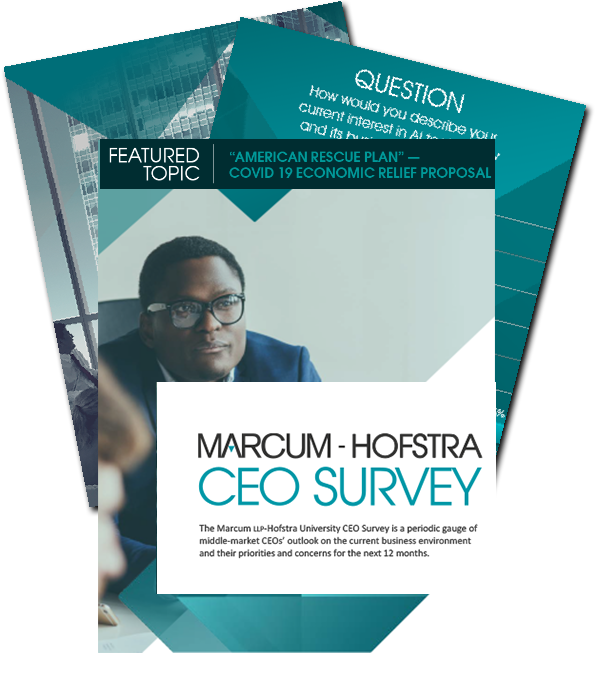
No. 1, 2021
The Biden Administration has proposed an “American Rescue Plan” that would provide additional relief in response to the COVID-19 pandemic.
2020
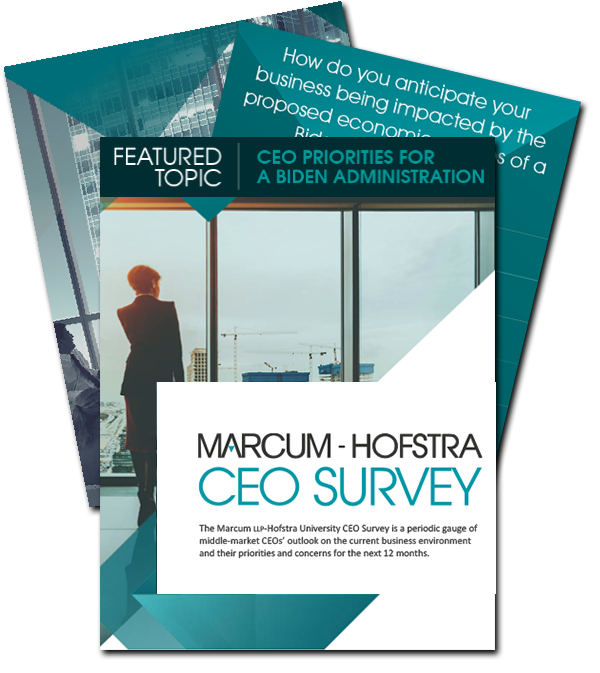
No. 4, 2020
More than one-third of CEOs indicated policies promoting U.S.-based manufacturing and government investment in infrastructure among their top three priorities (cited by 37% and 36% of CEOs, respectively).
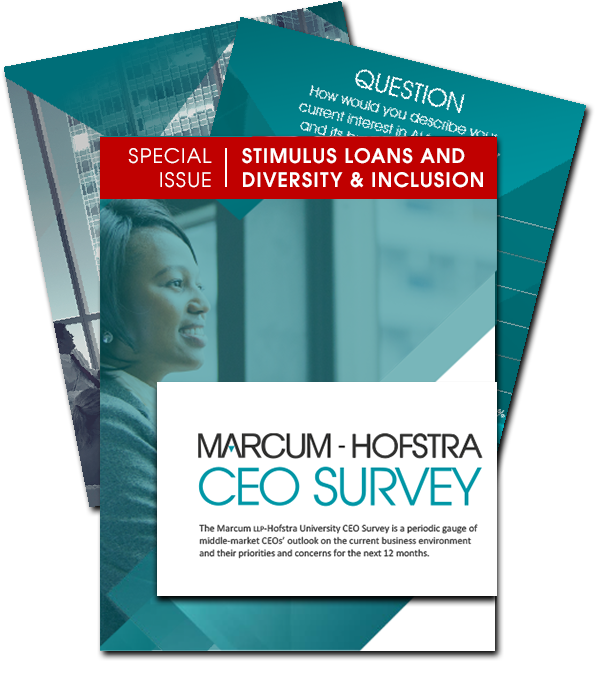
No. 3, 2020
More than half of middle-market CEOs say increasing racial diversity and inclusion is a top priority, and plan to examine their companies' policies in light of nationwide civil rights and social justice protests in recent months.
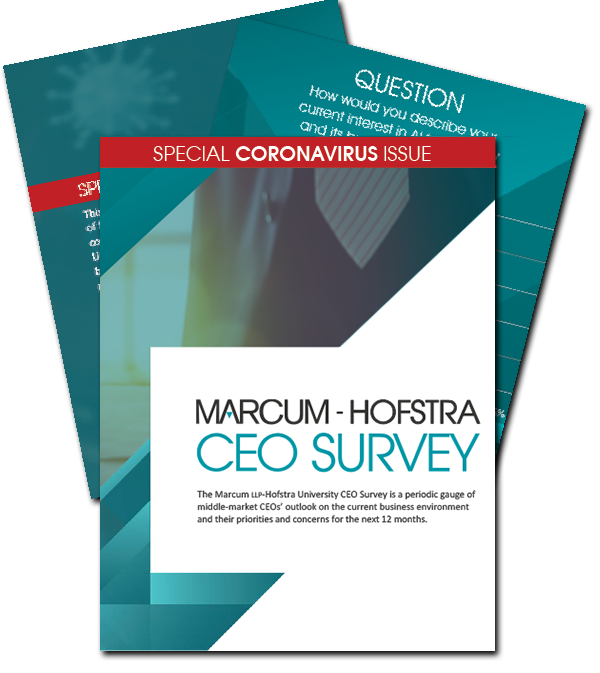
No. 2, 2020
This survey was conducted during the week of March 16, 2020, in the early stages of the coronavirus pandemic’s direct impact in the United States. These findings may serve as a baseline of CEO attitudes that can be used as a point of comparison during later stages as well as after the COVID-19 outbreak.
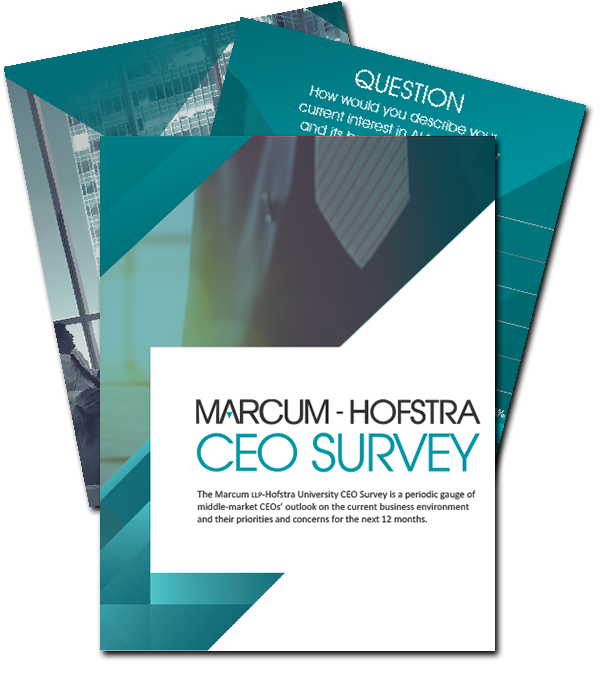
No. 1, 2020
CEOs of middle-market companies remain positive about the current business environment, but their optimism is waning as they head into 2020, according to the latest poll from Marcum LLP and Hofstra University’s Frank G. Zarb School of Business.
2019
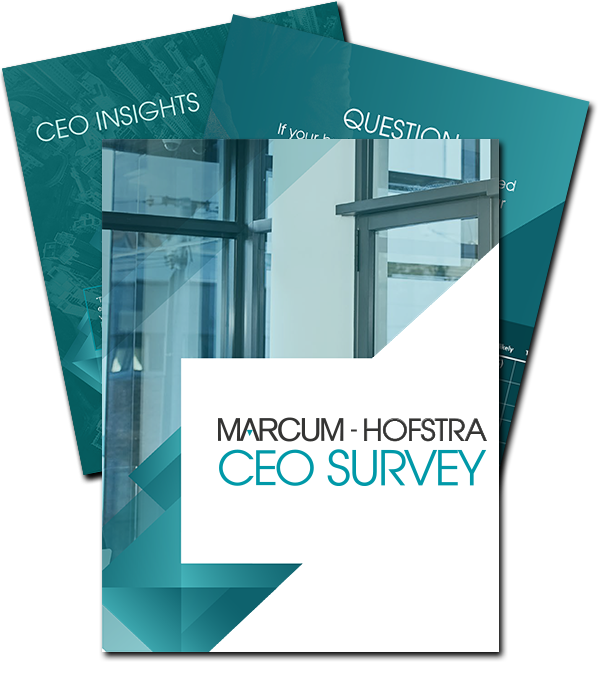
No. 2, 2019
CEOs were split on whether current U.S. trade policies are beneficial or harmful to the economy overall, with 46% indicating the policies are beneficial and 43% indicating they are harmful.
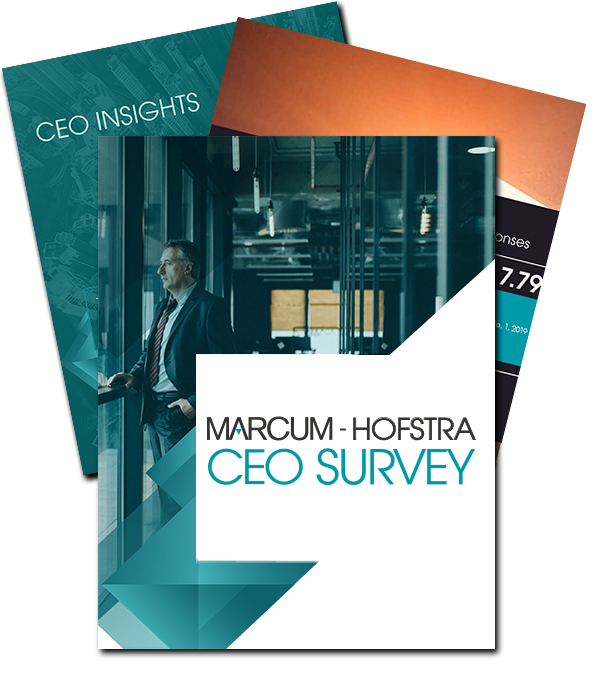
No. 1, 2019
18% of CEOs rated their outlook for the coming year as “10.” This is a substantial increase from the 7.1% who assigned a “10” rating in the previous (No. 4, 2018) survey.

